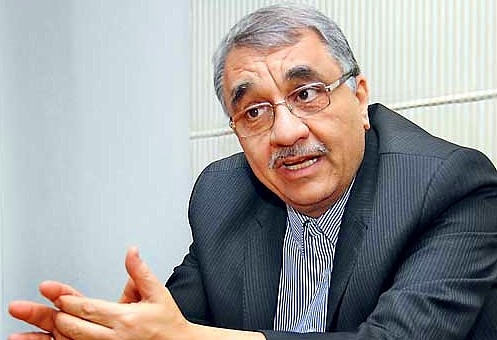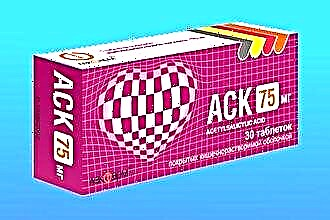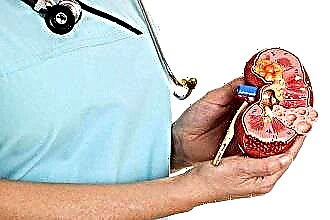The number of people suffering from cardiovascular ailments is constantly growing. Heart failure syndromes are steadily getting younger. This is manifested by a complex of symptoms: swelling of the legs, bluish tinge of the skin and mucous membranes. But the main symptom that patients complain about is a subjective feeling of lack of air or shortness of breath. This is shortness of breath with heart failure. Comprehensive treatment of the heart will help to reduce its manifestation or even disappear.

Formation mechanism
Even a perfectly healthy person periodically feels a lack of air. Usually, this feeling occurs during long runs and other cardio loads, as well as on nerves. This is a natural reaction, you do not need to sound the alarm in this case.
But if the norm of depth, frequency and rhythm of breathing is violated, such a condition must be seriously treated.
This complication is due to the lost performance of the heart, it ceases to cope with the volume of load necessary to ensure a normal rhythm of life. Before the onset of shortness of breath, other symptoms appear, which are usually not particularly focused on. For example, a person may not immediately understand why his body weight increases, although nutrition and the volume of loads have not changed at the same time. This happens because fluid begins to accumulate in the muscle tissue due to stagnation in the blood circulation. Cyanosis and swelling appear if a high level of salt consumption remains unchanged in the diet. The very same shortness of breath occurs as a result of a slowdown in blood flow due to impaired heart function. Therefore, part of the fluid is soaked through the walls of the vessels into the pulmonary vesicles. The ability of the lungs to oxygenate the blood is significantly reduced, making it difficult to breathe. The blood receives an insufficient amount of oxygen, which is compensated for by rapid breathing. There is a classification according to which there are 4 stages of shortness of breath.
| Degree | Severity | Description |
|---|---|---|
| 0 | Not | Shortness of breath does not bother, except for very intense exertion |
| 1 | Easy | Shortness of breath when walking fast or when going up a slight elevation |
| 2 | Average | Shortness of breath leads to slower walking compared to other people of the same age, or causes you to stop while walking at your usual pace on a level surface |
| 3 | Heavy | Shortness of breath makes you stop when walking up to 100 meters or after a few minutes of walking on a flat surface |
| 4 | Very heavy | The symptom makes it impossible to leave the house, manifests itself when dressing and undressing. |
The symptoms of shortness of breath at different stages of the pathology are aggravated and are more pronounced:
- the first stage is not considered a pathology and is characteristic of any healthy person - this is the result of intense cardio load;
- the second is characterized by oxygen starvation during moderate exercise;
- in the third stage of the disease, shortness of breath appears during daily work;
- the fourth stage is accompanied by rapid breathing even in the absence of physical activity.
It is important to remember that lying down can worsen the condition. In this regard, the most dangerous night attacks. Those suffering from such shortness of breath are prescribed medications, and most conveniently such patients feel half-sitting.
How to get rid of shortness of breath?
Over time, the symptoms of a cardiac disorder worsen, shortness of breath increases. The reason for this is the patient's reluctance to scrupulously and clearly follow the doctor's recommendations. You should not take independent measures, drug treatment can only be prescribed by a qualified specialist.
To establish the causes of respiratory disorders, the patient is prescribed an examination:
- R-graphy of the chest;
- biochemical blood test;
- ECG;
- analysis of the function of external respiration;
- Ultrasound of the heart.
People suffering from shortness of breath of cardiac origin are prescribed drugs of one or more groups:
| Drug group of the drug | Action and focus of the drug |
|---|---|
| Angiotensin-converting enzyme inhibitors | Expansion of blood vessels and lowering of blood pressure. Facilitate blood pumping. Reducing the severity of manifestations of heart disorders. |
| Beta blockers | Improving heart function. Slowing down the frequency of contractions, reducing the need for oxygen. |
| Diuretics | Improving the elimination of excess fluid from the whole body. |
| Aldosterone antagonists | The action is similar to diuretic drugs. Reduces the occurrence of scar tissue in the heart muscle. |
| Nitrates and hydralazine | Dilation of blood vessels. |
| Digoxin | An increase in the strength of heart contractions, a decrease in their frequency. Prescribed to patients with heart failure and atrial fibrillation. |
To reduce such manifestations, it is important to adhere to some recommendations for a healthy lifestyle:
- Carefully observe all the appointments of a specialist aimed at treating the underlying disease.
- Quit smoking. Smoking damages not only the lungs, but also the blood vessels, lowers the amount of oxygen in the blood, which leads to increased blood pressure and increased heart rate. Such changes significantly aggravate shortness of breath.
- Reduce your weight and maintain it at a healthy level.
- Do moderate physical activity daily. After discussing with a specialist the rehabilitation program for a cardiac disorder, this factor must be taken into account.
- Avoid stressful situations, as they can exacerbate the disease. Meditation and yoga classes will help you to learn how to control the level of stress.
- Do not go higher than 1500 meters above sea level.
In treating this manifestation, doctors usually prescribe a Mediterranean diet to their patients. It is rich in vegetables, fruits, whole grains, vegetable oils, low-fat dairy, and moderate amounts of seafood and fish. Foods high in cholesterol and trans fats should be avoided or at least significantly reduced.
It is necessary to significantly reduce the consumption of table salt, which promotes fluid retention. Alcohol also negatively affects the health of a person, since it leads to a weakening of the heart muscle, and, interacting with drugs, provokes the development of arrhythmias. In case of severe insufficiency, which is accompanied by a significant excess of fluid, experts recommend limiting water intake.
You need to carefully monitor the manifestations of symptoms and lead a calm, healthy lifestyle during recovery. It is necessary to stop being lazy and start working on yourself, taking seriously the manifestations of violations. Since there are a lot of reasons for the development of shortness of breath in a person, then the treatment should be complex - only in this way can you count on a speedy recovery.
Also, to improve ventilation of the lungs and better enrichment of blood with oxygen, you can perform simple breathing exercises:
- having exhaled all the air through your mouth, you need to inhale it through your nose, then exhale sharply with your mouth and draw in your stomach for ten seconds. Then inhale the air "belly" through the mouth and, drawing in the belly, hold your breath for another ten seconds. This exercise is performed in any comfortable position, even while walking or working in an office chair.
If you find symptoms of shortness of breath, it is important to understand that this is only a sign of some kind of discomfort.
You need to immediately call an ambulance for:
- the occurrence of severe wheezing, which can be heard even at a distance;
- cough with sputum pink, foamy consistency;
- cyanosis of the skin;
- the occurrence of cold, profuse sweat;
- extremely difficult to feel the pulse;
- a strong decrease in pressure to 90/60 mm Hg;
- inability to breathe while lying down.
Before the arrival of the doctor, take the following measures:
- open a window or window to provide fresh air to the room;
- unfasten the buttons of the collar zone to supply oxygen to the body and ensure good ventilation of the lungs;
- help a person to take a comfortable semi-sitting or sitting position, while the legs must be lowered in order to free the heart from unnecessary stress, creating an outflow of blood to the lower extremities;
- use an oxygen bag, if available;
- put a tablet of "Nitroglycerin" under the tongue.
Drugs
"Digoxin" - belongs to the group of cardiac glycosides. It lowers the heart rate caused by arrhythmias, thus making it easier for the heart and increasing its exercise tolerance. However, the drug tends to accumulate in the body, so it is not prescribed for a long time.
Carvedilol is a beta-blocker. It, like the above-described glycoside, helps to reduce the frequency of heart contractions, in addition, reduces oxygen deprivation of muscles, pressure, and removes excess fluid from the body.
"Monopril" refers to inhibitors. It dilates the arteries, facilitates the easy passage of blood through them, as well as the immediate delivery of oxygen to all organs.
"Lasix" is one of the diuretic drugs. It removes excess fluid for the body, which becomes one of the causes of shortness of breath. Together with it, the body actively leaves potassium. Therefore, you need to carefully monitor its constant replenishment in the form of products (baked potatoes, bananas).
For more information on how to get rid of the manifestations of heart failure, read here https://cardiograf.com/bolezni/dekompensatsiya/serdechnaya-nedostatochnost-lekarstva.html
Preventive measures
Any disease is better and easier to prevent than to get rid of existing symptoms. No remedy, even the most universal one, can help to forget a heart deficit forever. The manifestations of this malaise indicate stable changes. The only way to stop the progression of the disease and insure against its complications is to take pills continuously and a healthy lifestyle for many years.
To maximize your own safety, if the slightest cardiac signal appears, it is important to seek the help of a specialist in a timely manner and not to take on self-medication. It is necessary to undergo a routine preventive examination annually, even if nothing bothers you. During therapy, you need to monitor the state of the blood and constantly take its readings.
For prevention purposes, it is recommended to engage in feasible physical education, adhere to a balanced diet and, if possible, give up fatty, spicy and salty, flour and rich foods, stop abusing black coffee and strong tea. For people who are overweight, it is recommended to reduce it - this will greatly facilitate the work of the heart and improve blood flow throughout the body. To reduce shortness of breath, all breathing muscles need to be exercised. This can be done through swimming or breathing exercises using various techniques and daily walks in the fresh air.
Even secondhand smoke should be avoided.
It is very important to control and monitor the state of the liver and kidneys - the work of these organs also affects the mechanism of shortness of breath. It is advisable to avoid contact with feathers, animal hair, dust and other active allergens.
Observing these obvious rules, you can maintain your health for many years and prevent the development of cardiac problems and symptoms in the form of shortness of breath. This malaise most often develops in elderly people, so relatives need to pay attention and control the treatment process.



